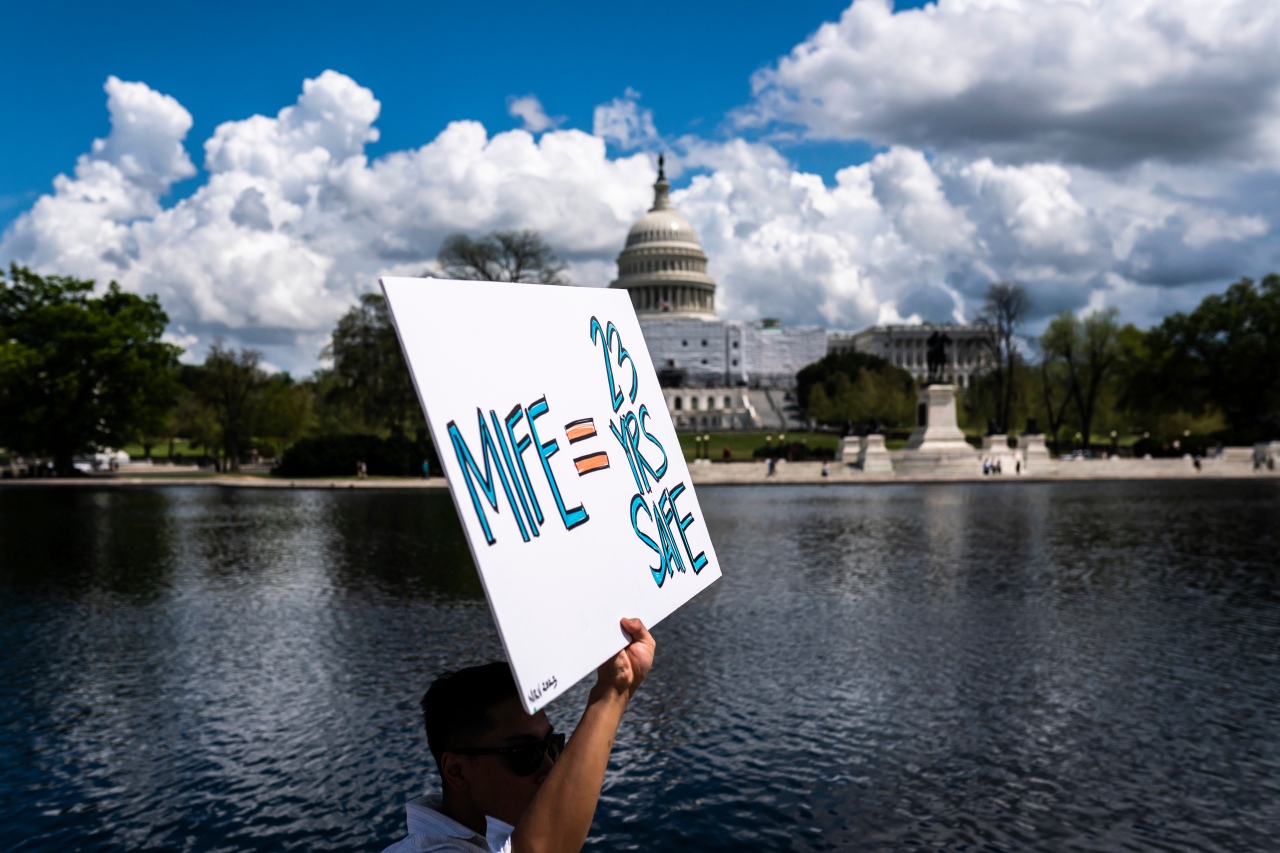All of the recent court rulings regarding a key drug used in medical abortions may have many women wondering: what does this mean for me?
Various courts have recently ruled on mifepristone, which is used in the most common form of abortion in the United States. The US Supreme Court on Wednesday temporarily extended access to the pill until Friday, while judges consider whether to allow certain restrictions to take effect.
Meanwhile, doctors, clinics and telehealth providers are taking steps to ensure they can still provide abortion care in the future.
For patients, there has been confusion “about whether or not they can get to their appointments,” said Dr. Becca Simon, a family physician in Pennsylvania who performs abortions. “We’re just trying to calm people down.”
IS THE TRADITIONAL TWO-DRUG TREATMENT STILL AVAILABLE?
Yes. People can still get medical abortions using mifepristone from doctors and clinics in states where it was available before the rulings.
Medical abortion, which accounts for more than half of all abortions in the United States, typically involves two drugs: mifepristone, which blocks progesterone, and misoprostol, which was unaffected by the various rulings. The combination of two drugs is also used to treat miscarriages.
There are no new restrictions on mifepristone at this time. But there may be some in the future in some states, depending on how the Supreme Court and other courts handle lawsuits.
Abortion providers have come up with back-up plans in case mifepristone is taken off the market or they face restrictions. This could include switching to a slightly less effective single-drug regimen using only misoprostol.
HOW SAFE IS MIFEPRISTONE?
Doctors and clinic operators are concerned that a decision earlier this month by a federal judge in Texas blocking the Food and Drug Administration’s approval of the drug — and media coverage about it — has led some people to question the safety of the drug.
“The language in the opinion that has been used is very, very disturbing,” said Dr. Ghazaleh Moayedi, an obstetrician-gynecologist from Texas.
Mifepristone, approved by the FDA in 2000, had been used by more than 5.6 million women in the United States as of June 2022, the agency said. Medical groups say complications occur at a lower rate than with routine medical procedures such as wisdom tooth extractions and colonoscopies.
In an amicus brief filed in the Texas case, the American College of Obstetricians and Gynecologists, the American Medical Association and other medical organizations said that when mifepristone is used as part of the two medications, serious side effects occur in less than 1% of patients. Major problems such as a significant infection or hospitalization occur in less than 0.3% of patients.
“Mifepristone is one of the most studied drugs prescribed in the United States and has a safety profile comparable to (the over-the-counter pain reliever) ibuprofen,” they wrote.
As with any medicine, there can be side effects. The most common are nausea, weakness, fever, chills and headache. Patients are also advised to call their health care provider immediately if they experience heavy bleeding or abdominal pain.
HOW CAN YOU GET MIFEPRISTONE PILLS FOR ABORTION?
In local clinics and doctors, abortions are allowed.
Medical abortions are not available in places where all abortions are prohibited. Thirteen states effectively ban it at all stages of pregnancy, and one when cardiac activity can be detected. Courts have blocked bans during pregnancy in five other states, and one, Georgia, where abortion is banned once cardiac activity can be detected.
If abortion is banned in a state, patients seeking one cannot legally obtain the pills via telehealth from any state or by mail, said Drexel University law professor David Cohen. They can, however, cross state lines to visit abortion providers in person or have telehealth appointments from states where abortion is legal.
Telehealth rules also vary. Six states that have not banned abortion — Arizona, Indiana, Nebraska, North Carolina, North Dakota and South Carolina — have requirements for at least one trip to the clinic, according to a February report from the Kaiser Family Foundation.
WHAT ABOUT THE SINGLE-DRUG ABORTION OPTION?
Many abortion providers say they consider a misoprostol protocol only if mifepristone becomes unavailable. Medical experts say it is a safe option and can also be used to treat miscarriages.
But many doctors say that’s not ideal. The combination of two drugs is about 95% to 99% effective in terminating a pregnancy. Used alone, misoprostol is less effective. Some research rates it at around 85% effectiveness, although other studies indicate that it is closer to that of the two-drug combination. Some doctors have said that misoprostol-only abortions can sometimes be more painful than abortions performed with both drugs.
In-office abortion procedures also remain an option.
Given the legal wrangling, Simon, the Pennsylvania doctor, said it’s unclear what the landscape will look like in a few weeks.
“We’re still reassuring people to keep coming to their clinics – who will always have options for them no matter what,” she said. ___ The Associated Press Health and Science Department is supported by the Howard Hughes Medical Institute Science and Education Media Group. The AP is solely responsible for all content.
Copyright 2023 The Associated Press. All rights reserved. This material may not be published, broadcast, rewritten or redistributed.

